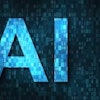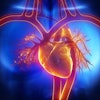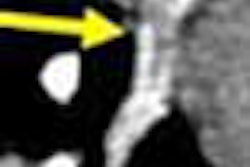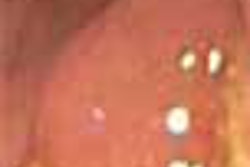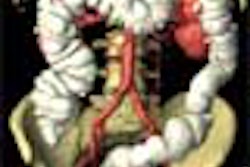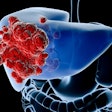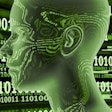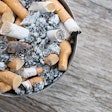CT screening centers didn't miss a beat when former U.S. President Bill Clinton emerged from New York City's Presbyterian Hospital/Columbia after successful bypass surgery on September 6.
A flurry of new ads on the Internet, in newspapers, and on the radio are using the Clinton media maelstrom to promote CT coronary artery calcium scans at screening centers -- and highlight the failure of the former leader's cardiac stress tests to detect significant arterial blockage.
Many cardiologists say Clinton missed a key opportunity to slow the progression of his atherosclerosis in 2001, when, buoyed by successful weight-loss efforts and dropping cholesterol counts, he stopped taking his cholesterol-lowering statin medication.
Many radiologists would add that a simple CT calcium scan would have revealed the trouble a decade ago, prompting aggressive management techniques that might not have been so easily abandoned once the former president lost weight and lowered his cholesterol -- ultimately sparing him heart surgery.
Gratified by the heightened interest in heart health that Clinton's star power has wrought, scanning practitioners nevertheless told AuntMinnie.com they were frustrated with the slow pace of CT's acceptance for coronary artery screening -- by the medical community, the U.S. Centers for Medicare and Medicaid Services (CMS), third-party payors, cardiologists, and even news reporters -- despite what they consider overwhelming evidence that the scans save money, suffering, and lives.
The trouble with Bill
Clinton checked into the hospital on September 3 after a bout of chest discomfort at rest that lasted 15-20 minutes, his cardiologist, Dr. Allan Schwartz, told reporters. The amount of physical activity preceding the onset of his symptoms had declined gradually over several months. Repeated stress tests over the years have been normal.
Following x-ray angiography that confirmed the presence of significant stenoses, the surgical team conducted a four-hour operation to bypass Clinton's left anterior descending, first diagonal, obtuse marginal, and posterior descending arteries. The operation revealed blockages of well over 90% in several vessels.
Ten days later the president is resting comfortably, talking and even walking a bit at his home in Chappaqua, NY. Like 98% of such operations, Clinton's has been a success.
Still, junk food-loving middle-aged males everywhere are feeling the former president's pain. And they're calling doctors and heart scanning centers in such numbers that some have proclaimed an outbreak of "Clinton syndrome."
New opportunities
"We've been deluged -- not only from people requesting interviews, but people from Bismarck, North Dakoka, or Iowa City, or ... Daytona Beach saying I want a scan," said Bruce Friedman, who owns 10 Heart Check America scanning centers across the U.S.
Call volume peaked on September 7, the day the Chicago center booked a record 60 scanning appointments, triple its normal volume, Friedman said. After leveling off, the phones were ringing off the hook again this week after publication of an Associated Press story for which he was interviewed, he said.
"(Callers) are saying, 'Hey, here's a guy like Clinton with unbelievable medical care. Cost isn't an issue. You suppose he's got the best doctors out there. Why didn't he have this scan?'" Friedman said. "It's a very fair question. And I know that when President (George W.) Bush had a (EBT) heart scan it was published in the New York Times .... Bush the elder also had a heart scan.... (Clinton's case) represents a failure of preventive medical care. The test has been available for a decade, and it should have been a part of the president's overall physical exam."
To make sure the phones keep ringing, Friedman's practice has launched a new radio ad capitalizing on the Clinton experience, he said.
"Bill Clinton was one very, very lucky man," the new ad states. "He experienced chest pain, which caused him to consult with his physician, which eventually led to lifesaving bypass surgery. But, 150,000 Americans each year aren't lucky enough to experience chest pain. Their first and only sign of heart disease is a fatal heart attack."
Farther down the coast, the San Diego-based LifeScore Clinic calls Clinton "a prime example of the importance of early detection" on its Web site, adding that "HeartScore can easily identify the high-risk patient years before the necessity for bypass surgery."
The ads might be considered audacious, but they are positively tasteful compared to others AuntMinnie.com has come across. One screening practice stood out with a radio spot warning listeners not to be "dumb like President Clinton" -- and to hurry out for a heart scan.
In any case, Friedman emphasized, Clinton's reliance on stress testing was inadequate to protect him from serious heart disease.
"The coronary scan is the entry-level scan," he explained. "If you have a high score, you go on for stress testing. If the stress testing is positive, you go on for angiography. It's a rather simple diagnostic algorithm. The thing that people have to understand is that if you have a positive calcium scan, you have calcium. And if you have a normal stress test, it doesn't mean the calcium scan is wrong." Angiography, a risky and invasive exam, is a terrible screening tool, he said.
Studies
Two studies published this year would appear to support a CT-first algorithm. In the Journal of the American Medical Association, researchers concluded that CT coronary calcium screening can significantly enhance the utility of Framingham Risk Score assessments, and can play a significant role in predicting cardiac deaths, while helping doctors make treatment decisions for patients at intermediate risk levels (JAMA, January 14, 2004, Vol. 291:3, pp. 210-215).
Perhaps more to the point, a study by Berman et al in last month's Journal of the American College of Cardiology found that 88% of patients with ischemia on myocardial perfusion SPECT had coronary artery calcium scores of 100 or greater. Significantly, 56% of patients with normal nuclear stress test results also had calcium scores in excess of 100, the researchers wrote.
The group concluded that CT coronary artery calcium scoring appeared to "obviate the need for subsequent noninvasive testing," and that the noninvasive exam revealed extensive atherosclerotic disease in many patients with normal stress tests (JACC, August 18, 2004, Vol. 44:4, pp. 923-930).
Meanwhile, the National Institutes of Health's National Cholesterol Education Panel has endorsed the use of coronary artery scanning. Even the conservative American Heart Association is rumored to be preparing a statement recommending calcium scans for intermediate-risk patients.
The public isn't interested in a lot of esoteric information, Friedman said. They want to know if the CT scan would have picked up Bill Clinton's disease. "The answer is yes," he said, "and we might have picked it up early enough so that he could be treated aggressively, and he might never be at this point."
Angiography in Massachusetts
Dr. Mark Furman, director of interventional cardiology at UMass Memorial Medical Center in Worcester, MA, noted that Clinton was diagnosed not with CT but with an angiogram, and that he told a nationwide cable television audience that angiography would be a great test for everyone. Judging from the response at Furman's facility, middle-aged males have been taking the former president to heart.
"The (Clinton) effect hasn't abated," Furman told AuntMinnie.com earlier this week. "Over the weekend people were being admitted with chest pain, and it seems that the patients, as well as the doctors, are sort of asking in a strong way if they could just go ahead and have a heart catheterization, as opposed to more conservative noninvasive management."
The angiography requests have been a little surprising, Furman said, especially since he's the one who generally initiates the idea. His facility does not perform CT calcium scans as a screening test, though CT angiography is performed under certain circumstances, he said.
Still, wouldn't CT calcium scoring be a better screening choice than angiography?
"It depends on the patient's presentation, but I think cardiac catheterization has an appropriate role as the first diagnostic tool in some patients," Furman said. "In other patients it's not the appropriate diagnostic tool.... I haven't seen evidence that ... CT screening offers better prognostic information than stress testing. In Bill Clinton it didn't, but then again ... nothing happened to him. He didn't have a bad outcome. It was caught before he had an MI (myocardial infarction), and he had appropriate medical management.... And who knows when his last stress test was?"
The date of Clinton's last stress test has not been publicized. But in a September 3 call to CNN's Larry King Live cable TV show, the former president said the tests were an annual affair.
"... I understand why there is a reluctance to do angiograms here and invasive surgery," Clinton told Larry King. "But I aced my stress test, four, five years in a row, every year I was in the White House, and every year since, so that's more than four or five years."
As for the crush of worried men seeking assessment of their symptoms, Furman said they do not receive an angiogram when only a stress test is indicated, regardless of what they've seen on television.
Scanning in Southfield
Dr. Marc Kahn, who owns EBT-Heart & Body Imaging in Southfield, MI, said Clinton's health was neglected.
"You've got to question the medical expertise that he received as president, and probably while he was governor of Arkansas," Kahn said. "Why did no one bother to do a heart scan on him? Whether it was EBT or multislice (CT), I suspect the calcium score was extremely high. It would have been an extremely important piece of information that would have guided his subsequent medical decisions."
The flow-based studies Clinton reportedly received are notoriously poor indicators of disease, he said.
"Frankly, he's lucky he's alive," Kahn said. "I don't know when the medical community at large is going to start to utilize heart scans for what they are, which is a great first evaluation of people who are at increased risk for serious heart disease."
He suspects that turf issues are a big part of the reason why heart scans remain unreimbursed despite strong evidence of their value. Primary care doctors are often poorly educated about the value of CT screening, he said. Cardiologists know better, he said, but may choose to remain silent because of high reimbursements they're receiving, adding that stress testing is "the number-one money generator in office-based cardiology."
Taking aim at his own profession, Kahn called radiology its own worst enemy. "I fail to understand why, five years ago when screening CT started taking off, the (American College of Radiology) and the powers that be didn't try to elevate the field and make something of it. Instead they got conservative ... and just hunkered down with the status quo."
Medicare, Blue Cross, and the other payors have their own reasons for denying coverage, he said, and need to find a way to turn things around. Still, Kahn said his center is doing all right these days. And next week, he said, he'll be launching a series of newspaper ads featuring Bill Clinton's story.
Not a boon for everyone
Inyoung Boyd echoed Kahn's endorsement of CT, noting in particular that EBT (GE Healthcare, Waukesha, WI) can diagnose atherosclerosis far more accurately than stress testing. Angiography is invasive, she added, good for detecting stenosis but not calcification.
Boyd, the wife of EBT inventor Douglas Boyd, Ph.D., and owner of two HeartScan centers in South San Francisco and Walnut Creek, CA, said the Clinton news has generated some interest, but certainly not an avalanche of new business.
"We've survived here 12 years because people are very educated; they can read the papers published on this technology -- more than 600," she said. Many of the center's customers are on strict management regimens, and return periodically for surveillance scans. "We're watching for progression of their disease," she said.
Their customer base is almost completely self-referred, for which she blames negative comments about CT scanning by some physicians and cardiologists. Worse, she said, misinformation is often echoed and amplified by a press corps that believes balance can be achieved by presenting any opposing viewpoint regardless of merit.
"It's very hard to survive," Boyd said. "These are very expensive machines, and everybody's just struggling.... This (EBT) test should be included in physical examinations, then the price of the scans would go down like mammography has."
The problem boils down to turf, Boyd said. Despite any number of studies pointing to its utility, cardiologists won't recommend CT scanning because they don't see themselves making money from it, she said.
Paying cardiologists' bills
Cardiologists are misinformed if they think they'll lose money on CT scanning, said Dr. Harvey Hecht, director of preventive cardiology at Beth Israel Medical Center in New York City.
"It's just the opposite," he said. "Those patients who undergo scanning are usually, number one, not patients who have been seen by a cardiologist -- it's usually handled by an internist. A fixed percentage of them will have abnormal scans, and will then need cardiology services. If the score is high enough, they will need stress testing, which if that's abnormal will lead to invasive procedures."
Even when calcium scores are only moderately high, cardiologists are often called on to administer aggressive preventive strategies, he said.
"What the cardiologists do not appreciate is that this is sound business for them," Hecht said. "They would not have had access to these patients before. So rather than decreasing business to cardiologists, it will increase it in an appropriate fashion. Those patients who need more aggressive treatments will end up being seen by the cardiologist. Those who don't would not have seen the cardiologist anyhow."
Clinton's situation has sparked increased interest in cardiac health issues in general at Beth Israel, Hecht said -- especially among middle-aged males. But like many other practitioners, Hecht believes the former president got some bad healthcare advice.
"Right down the street from the White House is the Walter Reed Army (Medical) Center, where they've been doing EBT calcium scans for at least a decade," Hecht said. "And it is astonishing -- and unconscionable -- that the president of the United States was not offered this technology. Had he been, the odds are absolutely overwhelming that he would have been found to be at high risk a decade ago. At that point in time, prevention strategies could have been implemented that would have very likely avoided the need for bypass surgery."
Speaking to an Associated Press reporter yesterday, Senator Hillary Rodham Clinton expressed her thanks for everyone's support during a difficult time for her husband.
"I hope this very public medical emergency that Bill had encourages men and women to have checkups, to have their cholesterol measured, to not ignore any signs of pain or distress, but to really take heart disease seriously," she said.
By Eric Barnes
AuntMinnie.com staff writer
September 16, 2004
Susceptibility-weighted MRI ups contrast, offers minute detail, September 15, 2004
Most MDCT scanners fall short in cardiac imaging, September 3, 2004
Stress-induced myocardial ischemia linked to subclinical atherosclerosis, August 18, 2004
Study validates cheap and easy method for atherosclerosis screening, July 30, 2004
Coronary calcium score is an effective prognostic tool for patients with diabetes, May 24, 2004
Copyright © 2004 AuntMinnie.com


